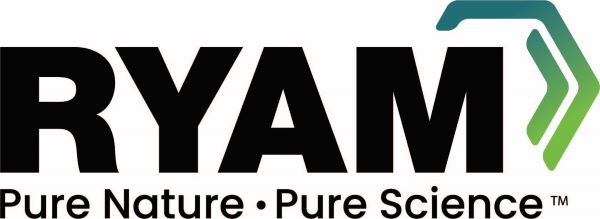
Rayonier Advanced Materials (RYAM) of Fernandina Beach has submitted an application to the state for a bioethanol production plant that would be located at its current cellulose production complex.
According to the “air construction permit application” submitted to the Florida Department of Environmental Protection on Nov. 13, RYAM is seeking to operate the plant on its current site along with two shift process tanks, one off-spec tank and one product storage tank that would have internal floating roofs. The application states the plant would produce 7.5 million gallons of bioethanol for sale each year. The product storage tank can hold 39,900 gallons.
The project description states that “product ethanol will be loaded to trucks,” which means an increase of truck traffic to and from the RYAM compound.
RYAM said the four plant tanks and the loadout to transport trucks will emit exempt emissions that are listed within the application. The application does not speak to potential groundwater or surface water pollution.
The company says, “The Bioethanol Plant is being designed to be as independent as possible from the existing plant operations. Neither the Bioethanol Plant nor the associated heat recovery projects will impact pulp production or other emissions units other than the Sulfite Recovery Boiler.”
According to the RYAM website, the current plant was built in 1937. The site states, “The Fernandina Beach plant is a cornerstone of our business. Producing 155,000 metric tons of softwood cellulose specialties annually, it employs more than 300 people and contributes $35 million in wages and salaries, supporting our employees’ families and local economies. Our operations are powered, in part, by Eight Flags LLC, a combined heat and power plant on-site fueled by natural gas, which emits 50% less GreenHouse Gases than coal and generates 20 MW of power for Amelia Island residents and businesses. Furthermore, RYAM’s partnership with Borregaard supports LignoTech’s on-site lignin plant, producing sustainable, high-performing lignin products using renewable raw materials.”
According to the Occupational Safety and Health Administration, renewable ethanol is produced by using advanced technologies from cellulosic materials such as waste paper, wood chips, and agricultural wastes. The production process can involve some hazardous materials, such as acids, bases, and gasoline (to denature the alcohol, or for blending).

What will this project do to the air quality in this area? The air quality here used to be excellent, as measured by the Air Quality Index set by the EPA. During the pandemic, air quality here got even better and was pristine. Since the pandemic, though, air quality here has degraded considerably and is no longer excellent.
So, in addition to a constant flow of log trucks in/out of the plant, we’ll now have a constant fleet of tanker trucks transporting a flammable product moving in/out. The capitalist in me welcomes the commerce and employment; the curmudgeon in me dreads the traffic impact. Yes, I’m aware that traffic in Jax, ATL and DC is far worse. One point of moving here was to enjoy the quaint, small town ambiance. Curious about the regulatory/environmental red tape in the review process.
Hopefully the State will be reviewing the air quality data.
At this point, it would be great for the State to look at the air quality at the sludge drying beds in Yulee. And maybe tie the current permit request to a re-evaluated permit for the Yulee facility.
Once rural Yulee, can not tolerate the odiferous conditions coming from this facility much longer without a revolt of some kind…
The last line captures the problem clearly – “The production process can involve some hazardous materials, such as acids, bases, and gasoline (to denature the alcohol, or for blending).” Don’t really see that as being the kind of expansion a barrier island would benefit from. Let them find a cozy spot for this out in West Nassau, Crawford Diamond or elsewhere.
“Manufacturing has left the country and we have become a service economy where the really good jobs are working at Burger King.” – Peter Schiff
Due to taxes, unions, and environmental regulations manufacturing has moved overseas.
To recover at least some of our Post WWII prosperity we must bring back manufacturing.
On the “Rayonier Applies to Get Into the Bioethanol Production”, am I correct in reading that the FB Commissioners don’t believe a Public Hearing is necessary? Is this 2023 or 1970? When someone proposes to put or expand a Chemical Manufacturing Facility nestled near a residential neighborhood of a relatively small town, there are immediate questions concerning: ENVIRONMENTAL (Soil and Water) IMPACTS, HEALTH, OVERALL QUALITY OF LIFE (Odors, Truck Traffic), and SAFETY (What happens in event of Storm Surge or Hurricane). Lets get real about what matters to F.B. citizens – Quality of Life or a Small Increase in Tax Revenues – HOW MUCH would be another Question to Ask?R.Sherretta